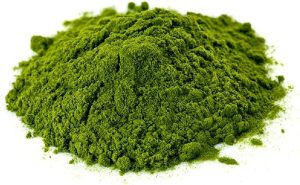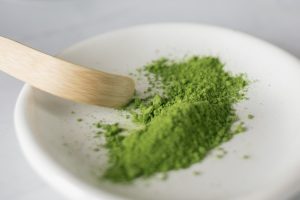
- Overview of Beta Carotene
- Brief History of Beta Carotene
- Functions of Beta Carotene
- Recommended Daily Intake (RDI), Recommended Dietary Allowance (RDA), Adequate Intake (AI), or Reference Nutrient Intake (RNI) for Beta Carotene
- Deficiency of Beta Carotene
- Food Sources of Beta Carotene and Where to Get It From
- Beta Carotene and Its Interaction with Other Medications
- Websites and Articles to Delve into the Benefits of Beta Carotene
- Disclaimer
Overview of Beta Carotene
Beta-carotene is a red-orange pigment found in various fruits and vegetables, functioning as a precursor to vitamin A. As a provitamin A carotenoid, the body converts beta-carotene into essential vitamin A, vital for vision, immune system health, and skin maintenance. Beta-carotene acts as a potent antioxidant, neutralizing free radicals to prevent oxidative stress and cellular damage. It plays a crucial role in supporting eye health, contributing to the synthesis of rhodopsin in the retina.
While beta-carotene supplementation is commonly used for potential benefits in skin health and disease prevention, excessive intake can lead to harmless skin discoloration. The conversion of beta-carotene to vitamin A varies among individuals, and its effectiveness in disease prevention requires further research.
Overall, a balanced diet rich in beta-carotene-containing foods provides a safer means to ensure adequate intake and associated health benefits.
Brief History of Beta Carotene
The discovery and understanding of beta-carotene trace back to the early 19th century. In 1831, the scientist H. Wackenroder first isolated a yellow-orange pigment from carrots, which was later identified as beta-carotene. The name “carotene” itself is derived from the Latin word “carota,” meaning carrot.
Throughout the 20th century, researchers elucidated the structure and chemical properties of beta-carotene. In the 1920s, scientists identified its role as a precursor to vitamin A, and by the mid-20th century, the process of converting beta-carotene into vitamin A in the body was better understood.
The importance of beta-carotene gained prominence in the latter half of the century due to its role as a dietary antioxidant and its potential health benefits. In the 1980s and 1990s, beta-carotene supplements gained popularity, with people considering them for their antioxidant properties and potential for preventing certain diseases, although subsequent research has provided mixed results on these claims.
Today, beta-carotene remains a subject of ongoing research, with scientists exploring its diverse roles in human health and its potential contributions to disease prevention. It continues to be recognized for its presence in various fruits and vegetables and its significance in maintaining overall well-being.
Here’s a brief history of beta-carotene presented in a table format:
| Year | Milestone |
|---|---|
| 1831 | Isolation of a yellow-orange pigment from carrots by H. Wackenroder. |
| 1907 | Identification of carotene as a fat-soluble compound in green plants. |
| 1930s | Recognition of carotene as a precursor to vitamin A. |
| 1960s | Elucidation of the process of converting beta-carotene to vitamin A. |
| 1980s-1990s | Growing popularity of beta-carotene supplements for potential health benefits. |
| Present | Ongoing research exploring beta-carotene’s roles in health and disease prevention. |
This table provides a concise overview of key milestones in the understanding and recognition of beta-carotene throughout history.
Functions of Beta Carotene
Beta-carotene, a type of carotenoid and a precursor to vitamin A, plays several essential functions in the body:
- Precursor to Vitamin A:
- Beta-carotene is converted into vitamin A (retinol) in the body, a crucial nutrient for maintaining healthy skin, vision, immune function, and mucous membranes.
- Antioxidant Activity:
- Beta-carotene acts as an antioxidant, helping to neutralize harmful free radicals that can damage cells and contribute to oxidative stress. Antioxidants play a role in protecting the body from various diseases and supporting overall health.
- Vision Support:
- Vitamin A, derived from beta-carotene, is essential for the synthesis of rhodopsin, a pigment in the retina that is crucial for low-light and color vision. Adequate beta-carotene intake contributes to maintaining optimal eye health.
- Skin Health:
- Beta-carotene is associated with skin health, contributing to the maintenance of skin integrity. It is often included in skincare products and supplements for its potential benefits in promoting healthy skin.
- Immune System Support:
- Vitamin A is vital for the proper functioning of the immune system. Beta-carotene-derived vitamin A helps maintain the integrity of mucosal surfaces, acting as a barrier against infections.
- Cellular Communication:
- Carotenoids, including beta-carotene, play a role in cellular communication and gene regulation. They influence cell differentiation, growth, and apoptosis (programmed cell death).
- Anti-Inflammatory Properties:
- Some studies suggest that beta-carotene may have anti-inflammatory effects, which can contribute to reducing inflammation in the body and supporting overall health.
- Cardiovascular Health:
- Beta-carotene may contribute to cardiovascular health by reducing oxidative stress and inflammation. Some research suggests potential benefits in reducing the risk of cardiovascular diseases.
It’s important to note that while beta-carotene offers various health benefits, obtaining it through a balanced diet rich in fruits and vegetables is generally considered safer than taking high-dose supplements. The body efficiently regulates the conversion of beta-carotene to vitamin A based on its needs, reducing the risk of vitamin A toxicity associated with excessive supplementation.
Recommended Daily Intake (RDI), Recommended Dietary Allowance (RDA), Adequate Intake (AI), or Reference Nutrient Intake (RNI) for Beta Carotene
As far as we are informed, there is no specific Recommended Dietary Allowance (RDA), Adequate Intake (AI), or Reference Nutrient Intake (RNI) established for beta-carotene alone. Instead, recommendations are often given for vitamin A, of which beta-carotene is a precursor.
The Recommended Dietary Allowance (RDA) for vitamin A is expressed in terms of Retinol Activity Equivalents (RAE), which take into account the different potencies of various forms of vitamin A. Beta-carotene is one of the carotenoids included in the calculation. As of my last update, the RDA for vitamin A is around 700 to 900 micrograms of RAE per day for adults, varying by age and gender.
Always consult with healthcare professionals or nutrition experts for personalized advice tailored to your specific health needs and conditions.
Deficiency of Beta Carotene
A deficiency of beta-carotene is essentially a deficiency in provitamin A carotenoids, which can lead to insufficient vitamin A levels in the body. Vitamin A deficiency can have several negative effects on health. Here are some potential consequences of a deficiency in beta-carotene:
- Night Blindness:
- Vitamin A is crucial for maintaining healthy vision, particularly in low-light conditions. A deficiency can lead to night blindness, where individuals have difficulty seeing in dim light.
- Impaired Immune Function:
- Vitamin A is essential for the proper functioning of the immune system. A deficiency can compromise the body’s ability to fight infections, making individuals more susceptible to illnesses.
- Dry Skin and Eye Issues:
- Vitamin A is important for maintaining the integrity of mucous membranes, including those in the eyes and respiratory and digestive tracts. Deficiency can result in dry skin, dry eyes, and an increased susceptibility to respiratory infections.
- Reduced Growth in Children:
- Adequate vitamin A is crucial for normal growth and development in children. A deficiency can lead to stunted growth and delayed development.
- Increased Susceptibility to Infections:
- Vitamin A plays a role in maintaining the health of the skin and mucous membranes, acting as a barrier against pathogens. A deficiency can increase the risk of infections, especially respiratory and gastrointestinal infections.
- Impaired Reproductive Health:
- Vitamin A is important for reproductive health, and a deficiency can lead to issues such as infertility and complications during pregnancy.
It’s important to note that while beta-carotene is a key source of provitamin A carotenoids, vitamin A can also be obtained directly from animal sources in the form of retinol. In regions where vitamin A deficiency is a public health concern, interventions such as vitamin A supplementation or fortification of food with vitamin A are implemented to prevent associated health problems.
Individuals at risk of vitamin A deficiency, such as pregnant women and young children, should ensure they consume a balanced diet rich in sources of vitamin A, including foods high in beta-carotene, to meet their nutritional needs. If there are concerns about vitamin A deficiency, it is crucial to consult with healthcare professionals for proper assessment and guidance.
Food Sources of Beta Carotene and Where to Get It From
Beta-carotene is abundant in various fruits and vegetables, particularly those with vibrant orange, red, and green colors. Here are some food sources rich in beta-carotene:
- Carrots:
- Carrots are well-known for their high beta-carotene content, contributing to their orange color.
- Sweet Potatoes:
- Sweet potatoes are rich in beta-carotene and have a sweet flavor. The deeper the orange color, the higher the beta-carotene content.
- Pumpkins:
- Pumpkins, like sweet potatoes, are rich in beta-carotene. They are versatile and can be used in various dishes.
- Butternut Squash:
- Another member of the squash family, butternut squash, is a good source of beta-carotene.
- Spinach:
- Dark leafy greens, including spinach, contain beta-carotene, albeit in lower amounts compared to some orange vegetables.
- Kale:
- Kale is a nutrient-dense leafy green that contains beta-carotene along with other valuable nutrients.
- Mangoes:
- Mangoes are a tropical fruit with a bright orange color, indicating the presence of beta-carotene.
- Cantaloupe:
- This melon has a sweet orange flesh that indicates the presence of beta-carotene.
- Apricots:
- Apricots, especially those with a deep orange color, are a good source of beta-carotene.
- Red and Orange Peppers:
- Red and orange bell peppers contain beta-carotene, providing not only color but also nutritional benefits.
- Papayas:
- Papayas are rich in beta-carotene and other vitamins, contributing to their nutritional value.
- Broccoli:
- While not as high in beta-carotene as some other vegetables, broccoli contains moderate amounts along with other essential nutrients.
Consuming a variety of these fruits and vegetables can help ensure an adequate intake of beta-carotene. It’s important to note that the body converts beta-carotene into vitamin A as needed, and obtaining it from whole foods is generally considered safe.
Additionally, including some healthy fats in meals can enhance the absorption of beta-carotene, as it is a fat-soluble compound. If dietary restrictions or concerns about intake arise, consulting with a registered dietitian or healthcare professional is advisable.
Beta Carotene and Its Interaction with Other Medications
Beta-carotene, when obtained from dietary sources, is generally considered safe and does not usually interact significantly with medications. However, when taken in supplemental form or in high doses, beta-carotene may interact with certain medications or conditions. Here are some considerations:
- Anticoagulants (Blood Thinners):
- Beta-carotene supplements may increase the risk of bleeding, especially when taken in combination with anticoagulant medications like warfarin. It’s important for individuals taking blood thinners to consult with their healthcare provider before using beta-carotene supplements.
- Isotretinoin (Accutane):
- Isotretinoin, a medication used for severe acne, is a form of vitamin A. Taking beta-carotene supplements along with isotretinoin may increase the risk of vitamin A toxicity. It’s crucial for individuals on isotretinoin to avoid excessive vitamin A intake, including beta-carotene supplements.
- Orlistat (Xenical, Alli):
- Orlistat is a medication used for weight loss that can reduce the absorption of fat-soluble vitamins, including beta-carotene. Individuals taking orlistat may need to ensure adequate intake of beta-carotene and other fat-soluble vitamins.
- Mineral Oil:
- Some studies suggest that mineral oil may interfere with the absorption of beta-carotene. If using mineral oil as a laxative, it’s advisable to separate its use from beta-carotene intake.
- Smoking and Asbestos Exposure:
- Studies have indicated that beta-carotene supplements may increase the risk of lung cancer in individuals who smoke or are exposed to asbestos. It’s generally recommended that smokers avoid beta-carotene supplements unless advised by a healthcare professional.
It’s crucial to consult with a healthcare provider before starting any new supplement regimen, especially if you are taking medications or have pre-existing health conditions. Healthcare professionals can provide personalized advice based on your specific health status and potential interactions.
While beta-carotene obtained from food sources is generally safe, excessive intake from supplements can lead to a condition known as carotenodermia, causing the skin to turn yellow or orange. This condition is generally harmless but can be disconcerting. As with any supplement, moderation and balance are key.
Websites and Articles to Delve into the Benefits of Beta Carotene
To delve deeper into the benefits of beta-carotene, you can explore reputable websites and articles that provide comprehensive information backed by scientific research. Here are some reliable sources where you can find valuable information on the subject:
- National Institutes of Health (NIH) – Office of Dietary Supplements:
- Mayo Clinic:
- Harvard T.H. Chan School of Public Health:
- WebMD:
- Linus Pauling Institute at Oregon State University:
- American Cancer Society:
- World Health Organization (WHO):
When exploring information online, it’s essential to rely on reputable sources and scientific literature. Peer-reviewed journals, government health agencies, and academic institutions often provide trustworthy information. Always consider the credibility of the source, and consult with healthcare professionals if you have specific health concerns or questions about beta-carotene and its benefits.
Disclaimer
The information is solely provided for educational purposes. It is not intended to diagnose, treat, cure, or prevent any disease. Seek the advice of your physician or qualified healthcare provider with any questions you may have regarding a medical condition at all times. Never disregard professional medical advice because of something you have read or learned from this article.






